Archaeology & History
In Pictures: See Images of the Hundreds of Flawlessly Preserved Mummies and Bronze Statues Archaeologists Just Unveiled in Egypt
The discovery also included 150 bronze statuettes, the largest such cache ever found.
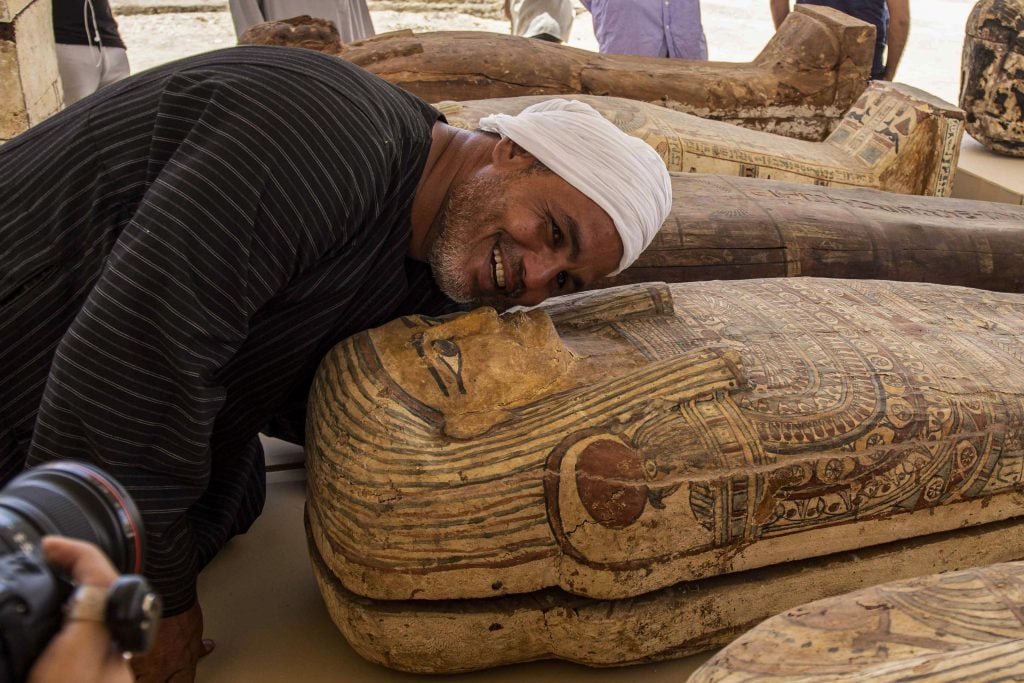
The discovery also included 150 bronze statuettes, the largest such cache ever found.

Sarah Cascone

Archaeologists at the necropolis of Saqqara, near Cairo, have discovered a cache of 250 ancient Egyptian mummies and the largest caches of bronze statues ever found at the site—150 in total.
Journalists arrived to Monday’s press event staged in front of the Step Pyramid of Djoser by the Egyptian Ministry of Tourism and Antiquities to find rows of painted sarcophagi, each stunningly well-preserved. There was also a case for the impressive collection of bronzes, which depict Egyptian deities such as Anubis, god of death, and the sun god Amun, as well as two wooden statues of the deities Isis and Neftis, with gilded faces.
“They were in a seated position [by one coffin], one of them by the head of the coffin and the other by the feet, in a position called ‘the mourners’ or ‘weepers’ for the deceased,” Mohamed Al Saidi, the mission’s director, told CBS News.
The sarcophagi are destined for the collection of the eagerly awaited Grand Egyptian Museum, which should finally open near the pyramids of Giza in November.
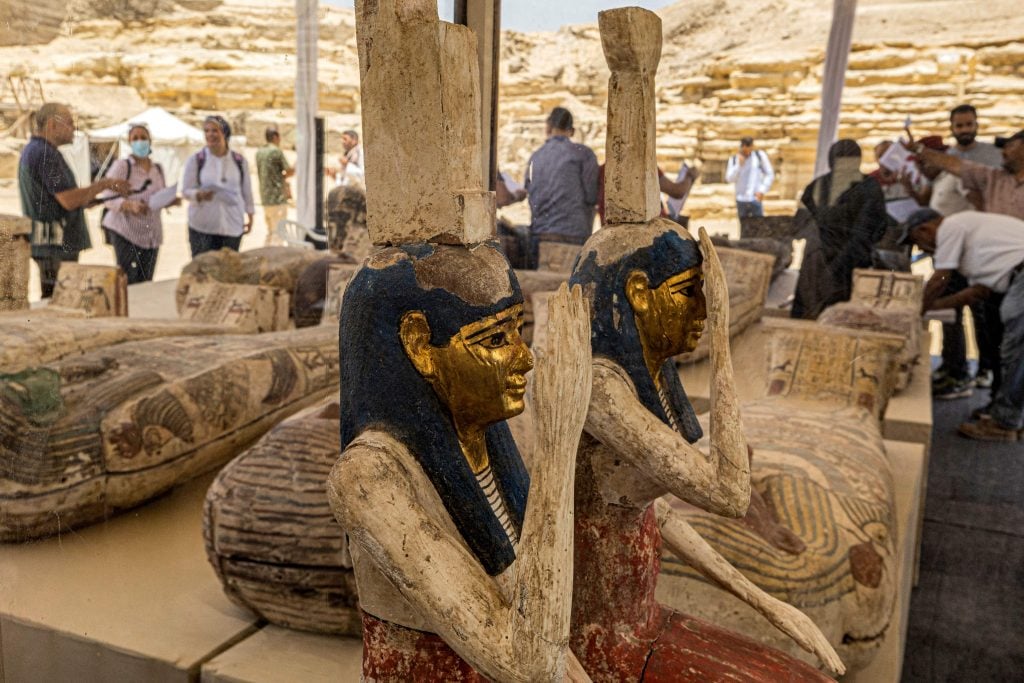
Statuettes depicting the Egyptian goddesses Isis and Neftis. Photo by Khaled Desouki/AFP via Getty Images.
The antiquities, which date to the 5th century BCE, were the fifth and latest major find from an archaeological mission at Saqqara’s Cemetery of Sacred Animals that began 2018 and are expected to continue for years to come. So far only a quarter has been excavated.
The site is named for the mummified animals buried there, but was previously called “Bubasteion” after the goddess Bast, who took the form of a cat.
“Today’s discovery confirms that the temple wasn’t exclusively for cats, but for other Egyptian deities too,” Al Saidi added.
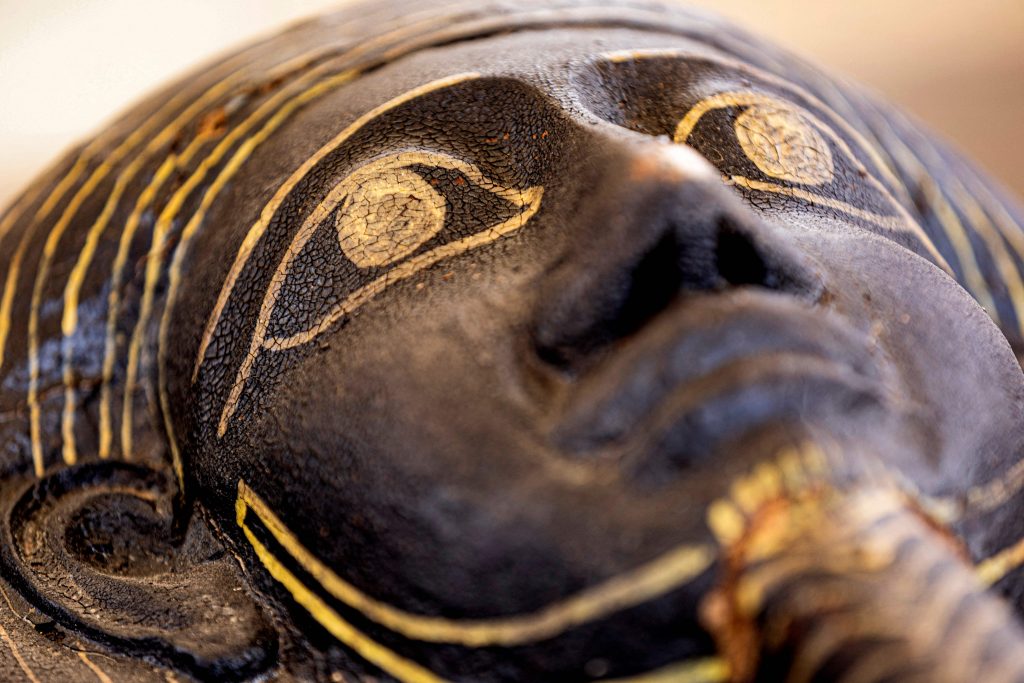
One of the sarcophaguses found in a cache at the Saqqara necropolis, southwest of Egypt’s capital. Photo by Khaled Desouki/AFP via Getty Images.
“In one of the wooden sarcophagi, we found, for the first time, a complete and sealed papyrus,” Mostafa Waziri, the secretary general of Egypt’s Supreme Council of Antiquities, said at the event, as reported by the Washington Post.
Other finds include combs, kohl eyeliners, bracelets, earrings, and necklaces.
Egypt is hopeful that its continued spate of high-profile archaeological finds—including the world’s oldest brewery and the lost city of Luxor—will help revive tourism to the country, an important industry for the nation.
See more photos from the discovery below.
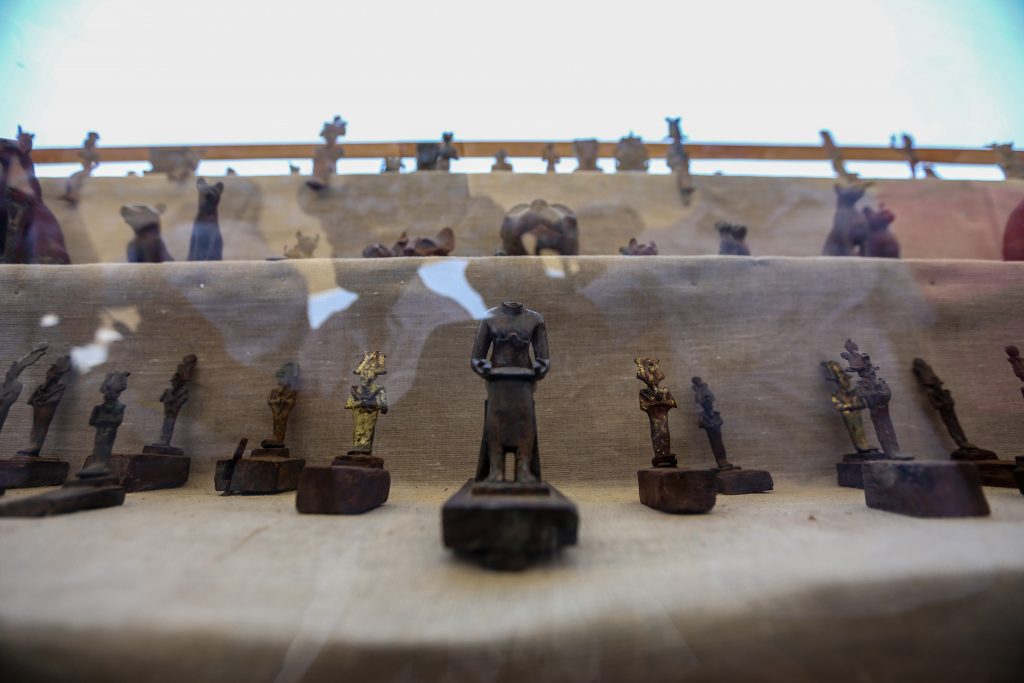
The bronze statuettes discovered at Saqqara. Photo by Ziad Ahmed/NurPhoto via Getty Images.
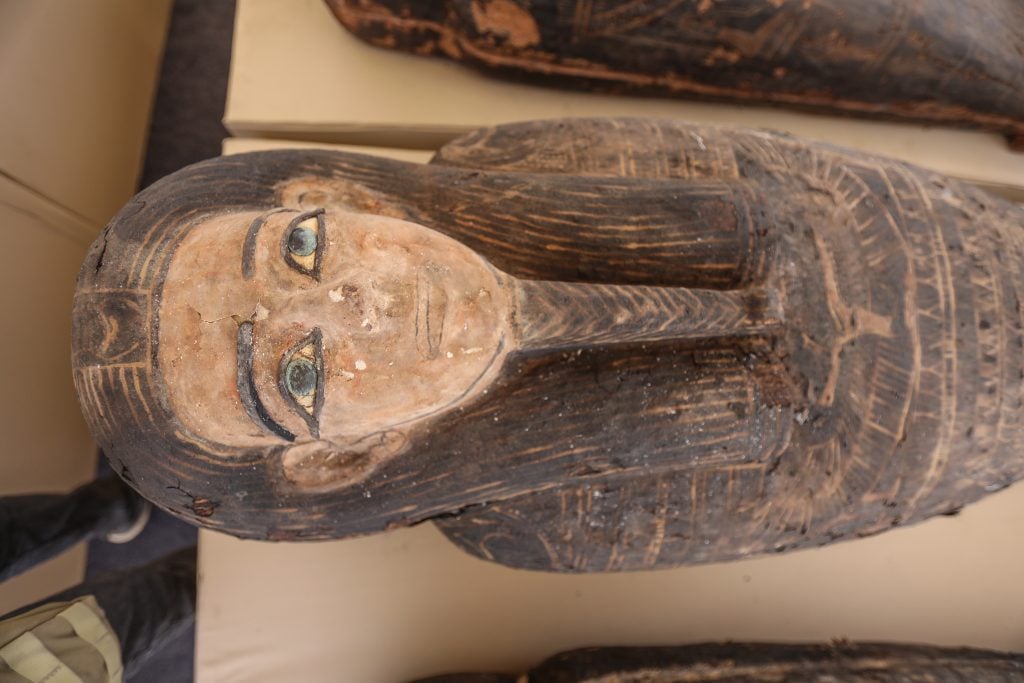
A sarcophagus discovered at Saqqara. Photo by Mohamed Abdel Hamid/Anadolu Agency via Getty Images.
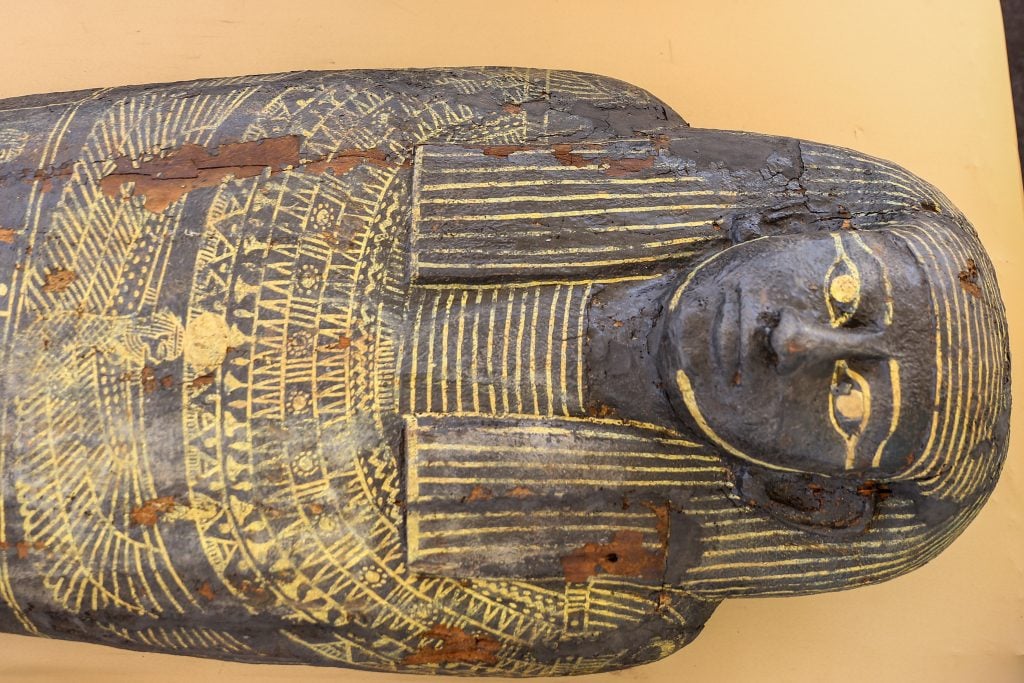
A sarcophagus discovered at Saqqara. Photo by Ziad Ahmed/NurPhoto via Getty Images.
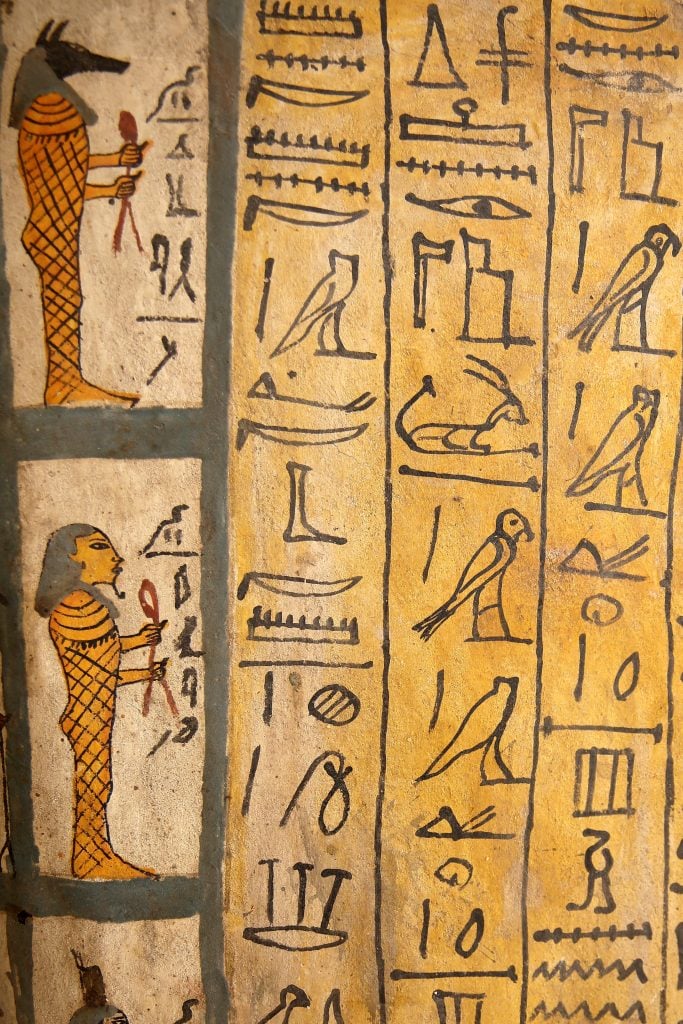
A painted artifact discovered at Saqqara. Photo by Fadel Dawod/Getty Images.
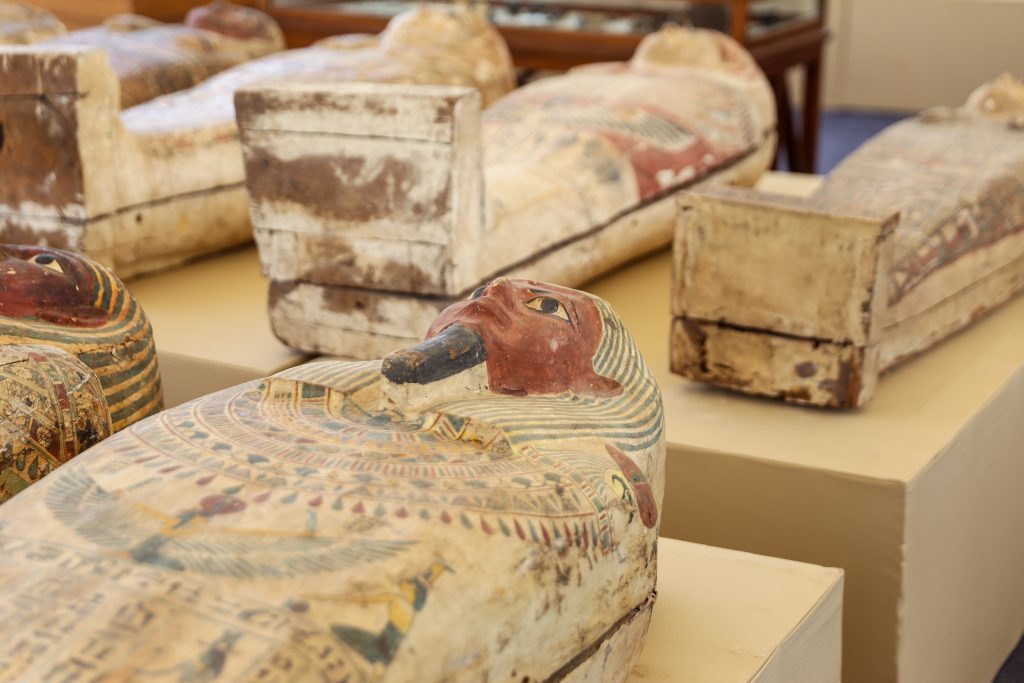
Sarcophagi discovered at Saqqara. Photo by Ziad Ahmed/NurPhoto via Getty Images.
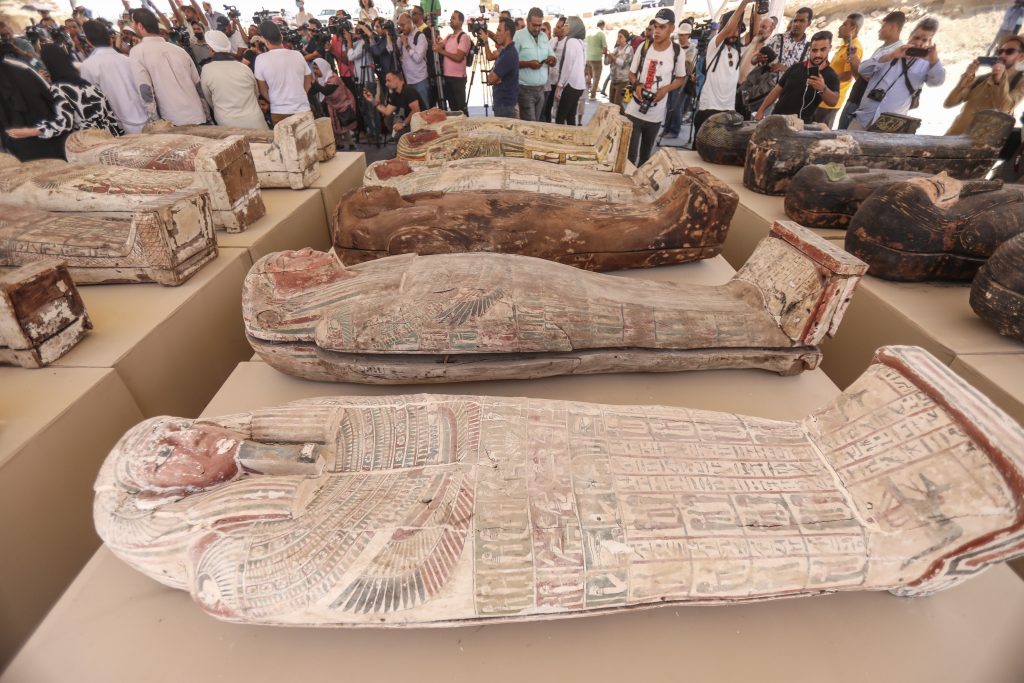
Sarcophagi discovered at Saqqara. Photo by Mohamed Abdel Hamid/Anadolu Agency via Getty Images.
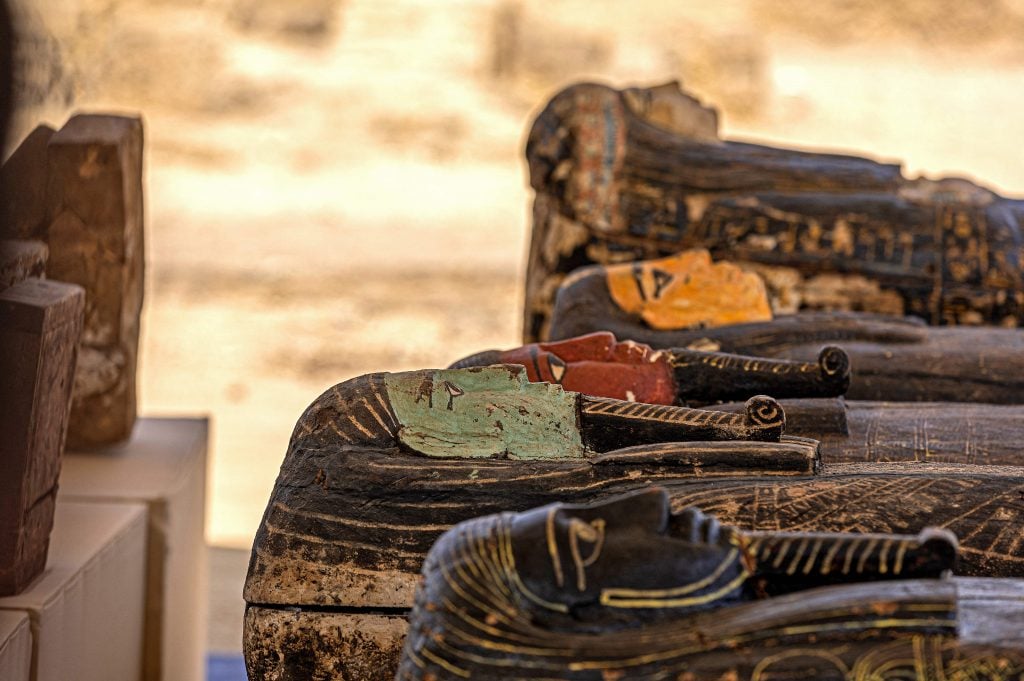
Sarcophaguses found in a cache at the Saqqara necropolis, southwest of Egypt’s capital. Photo by Khaled Desouki/AFP via Getty Images.
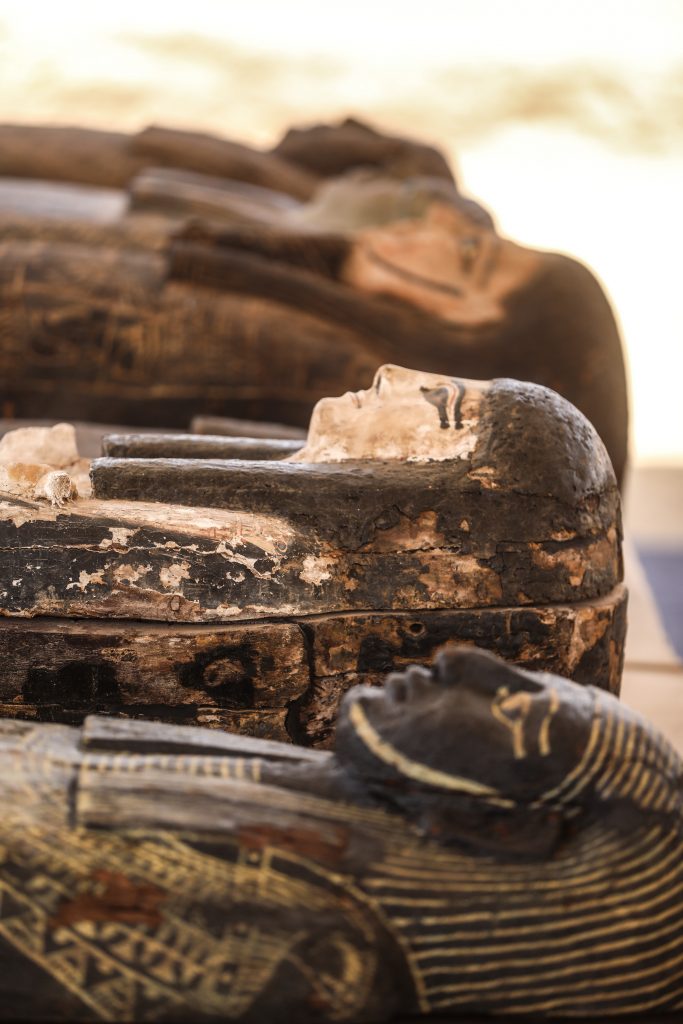
Sarcophagi discovered at Saqqara. Photo by Mohamed Abdel Hamid/Anadolu Agency via Getty Images.
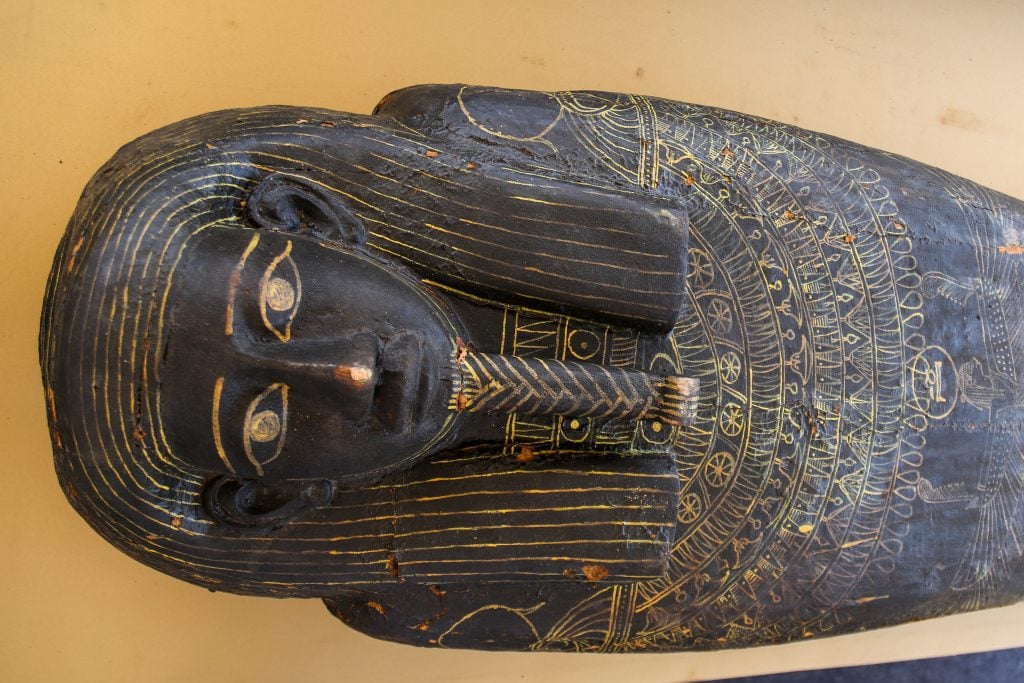
A sarcophagus discovered at Saqqara. Photo by Ziad Ahmed/NurPhoto via Getty Images.
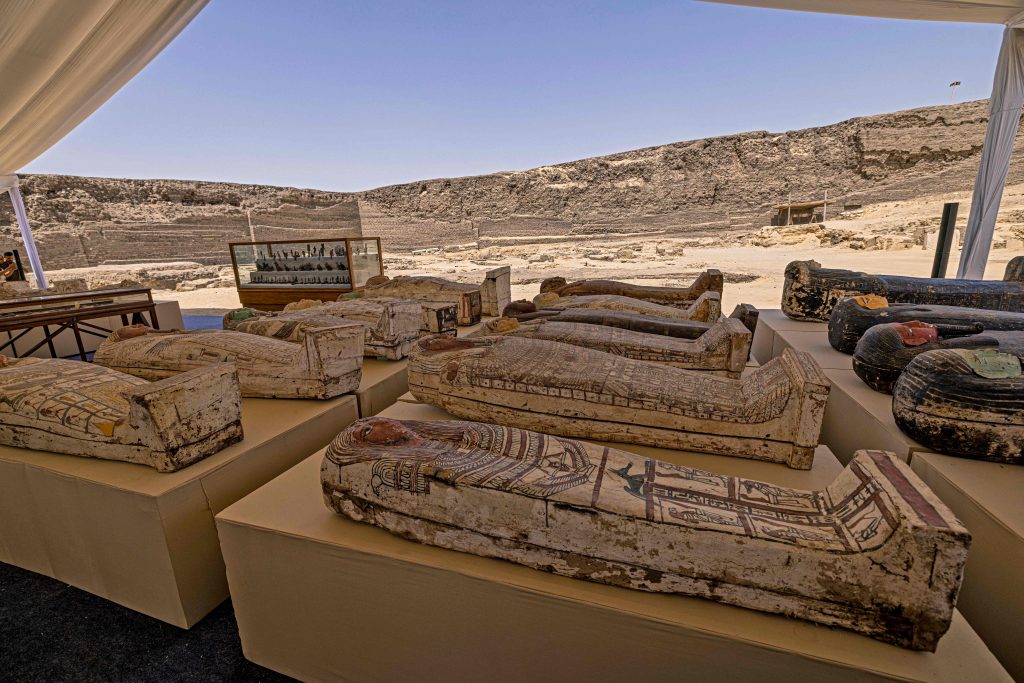
Sarcophaguses found in a cache at the Saqqara necropolis, southwest of Egypt’s capital. Photo by Khaled Desouki/AFP via Getty Images.
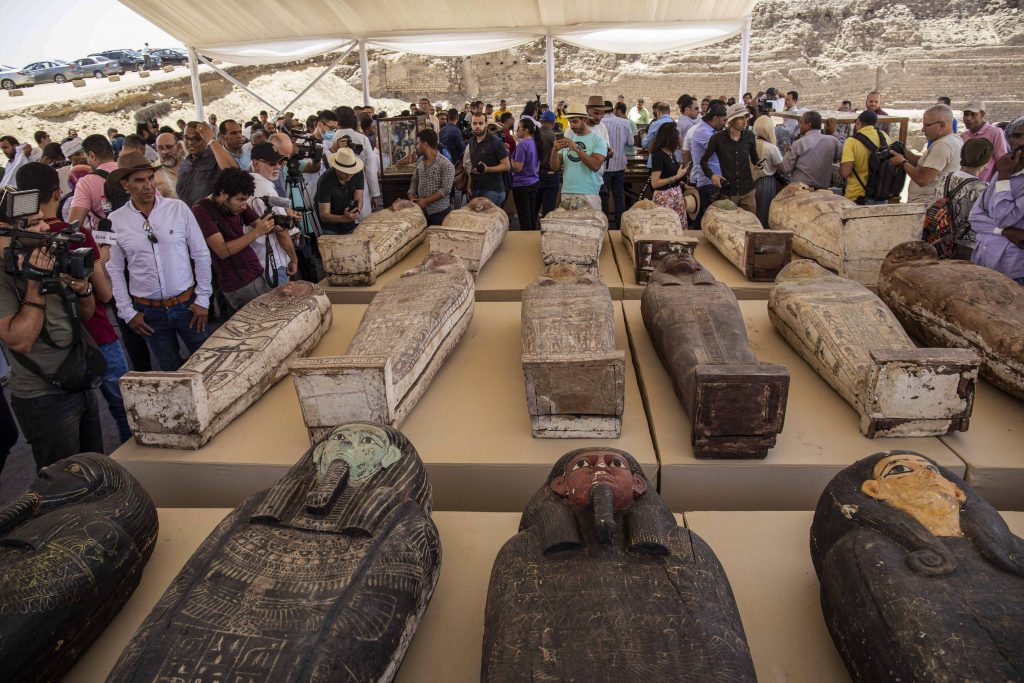
Sarcophaguses found in a cache at the Saqqara necropolis. Photo by Mahmoud El-Khawas/picture alliance via Getty Images.
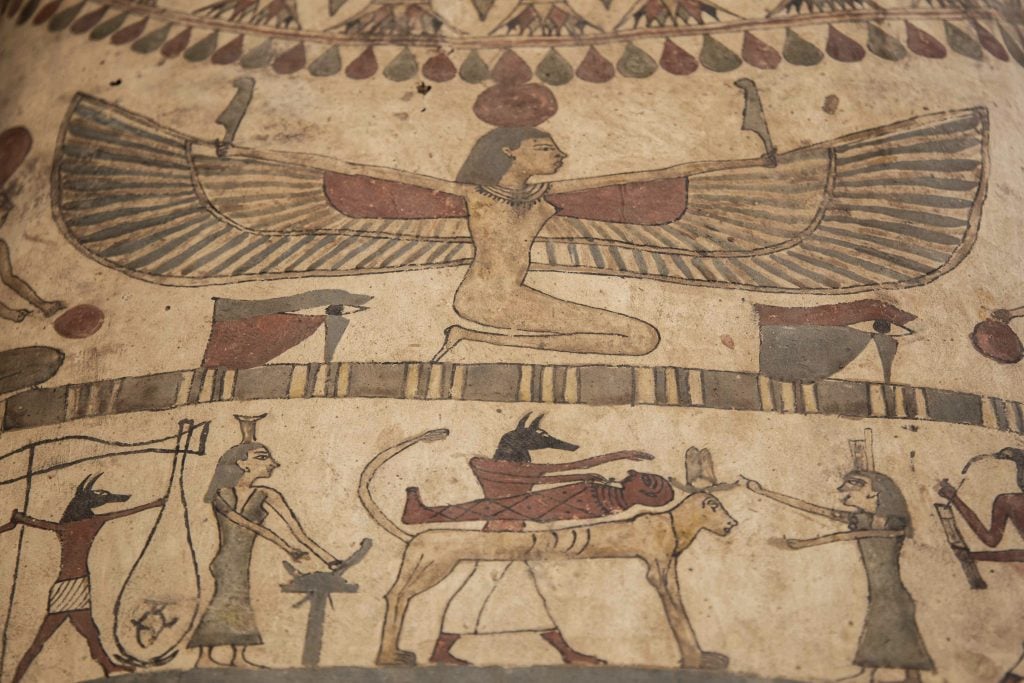
Painting on a sarcophagus discovered at Saqqara. Photo by Mahmoud El-Khawas/picture alliance via Getty Images.
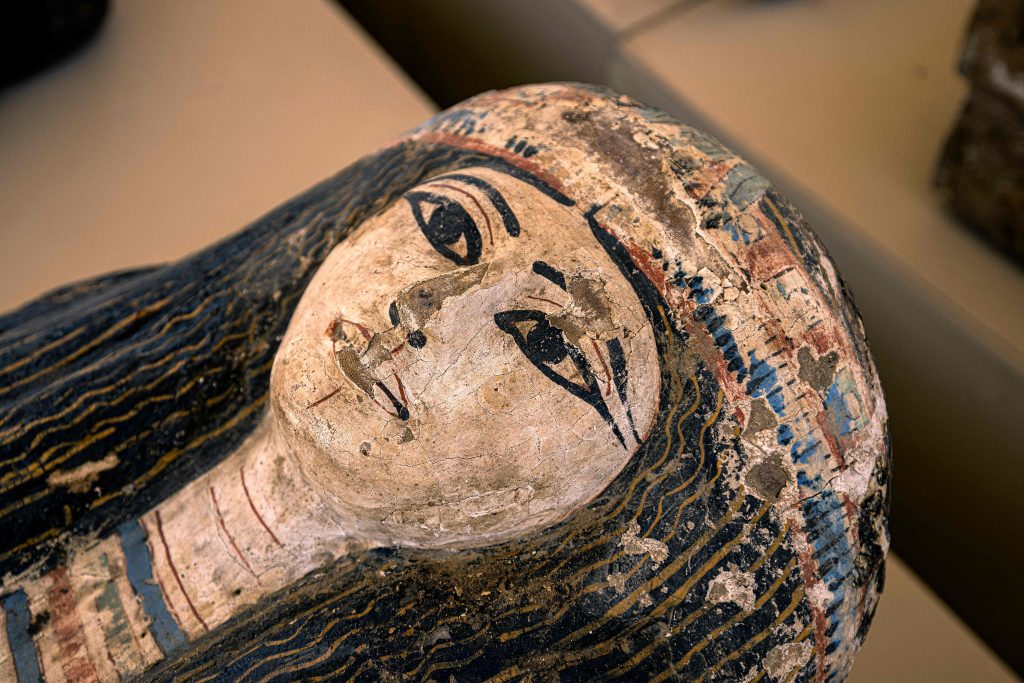
One of the sarcophaguses from the Saqqara necropolis. Photo by Khaled Desouki/AFP via Getty Images.
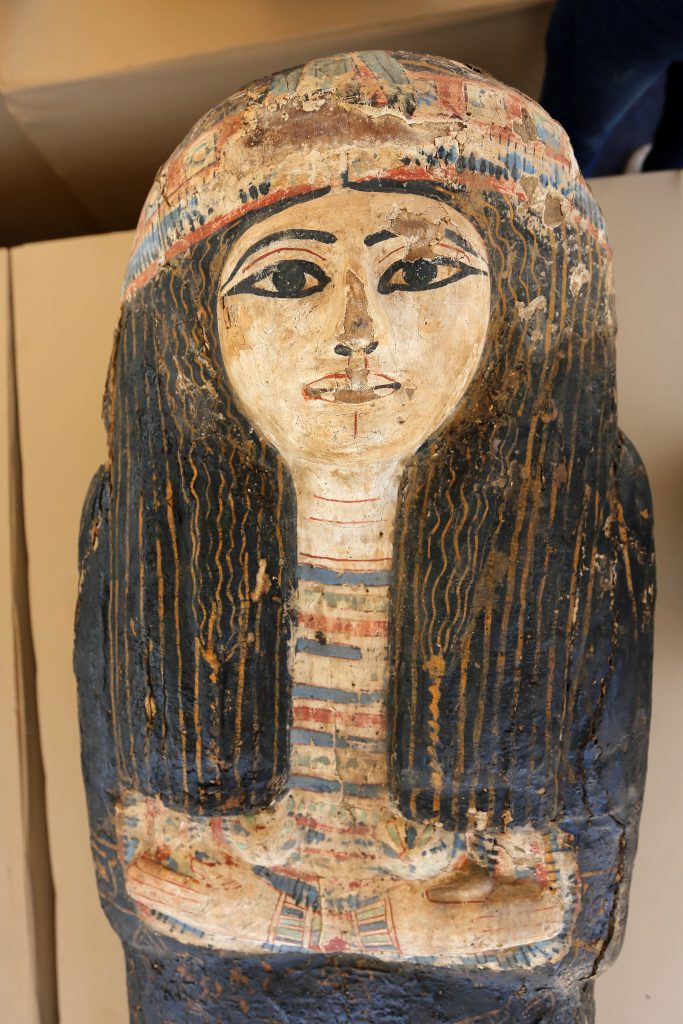
One of the sarcophaguses from the Saqqara necropolis. Photo by Fadel Dawod/Getty Images.
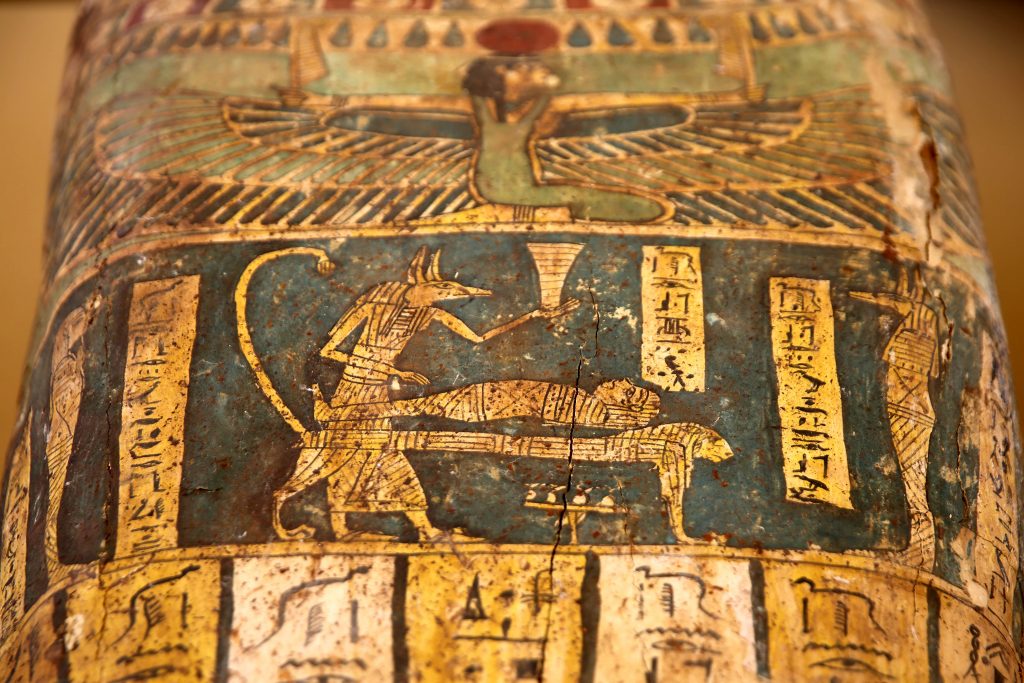
Painting on one of the sarcophaguses from the Saqqara necropolis. Photo by Fadel Dawod/Getty Images.